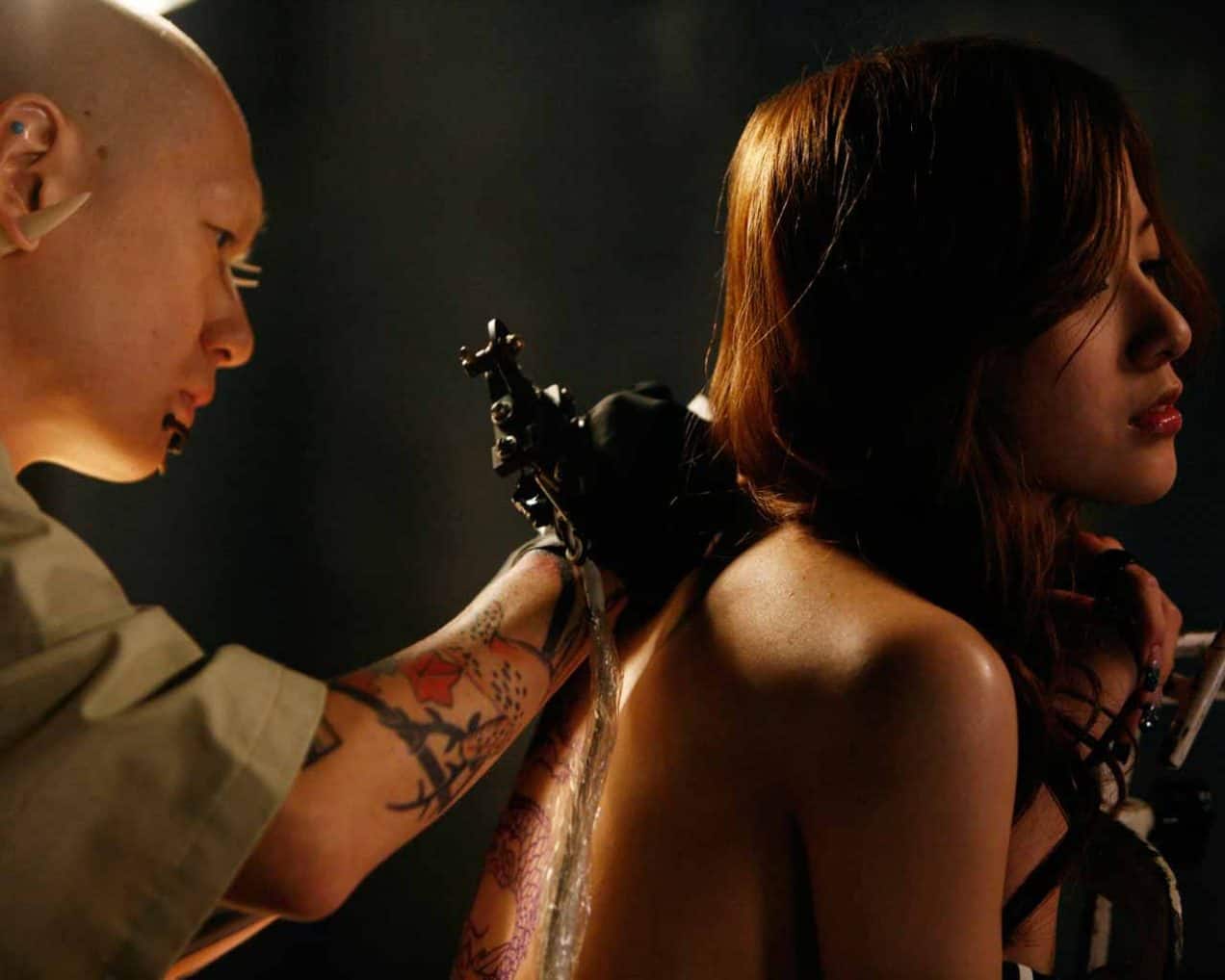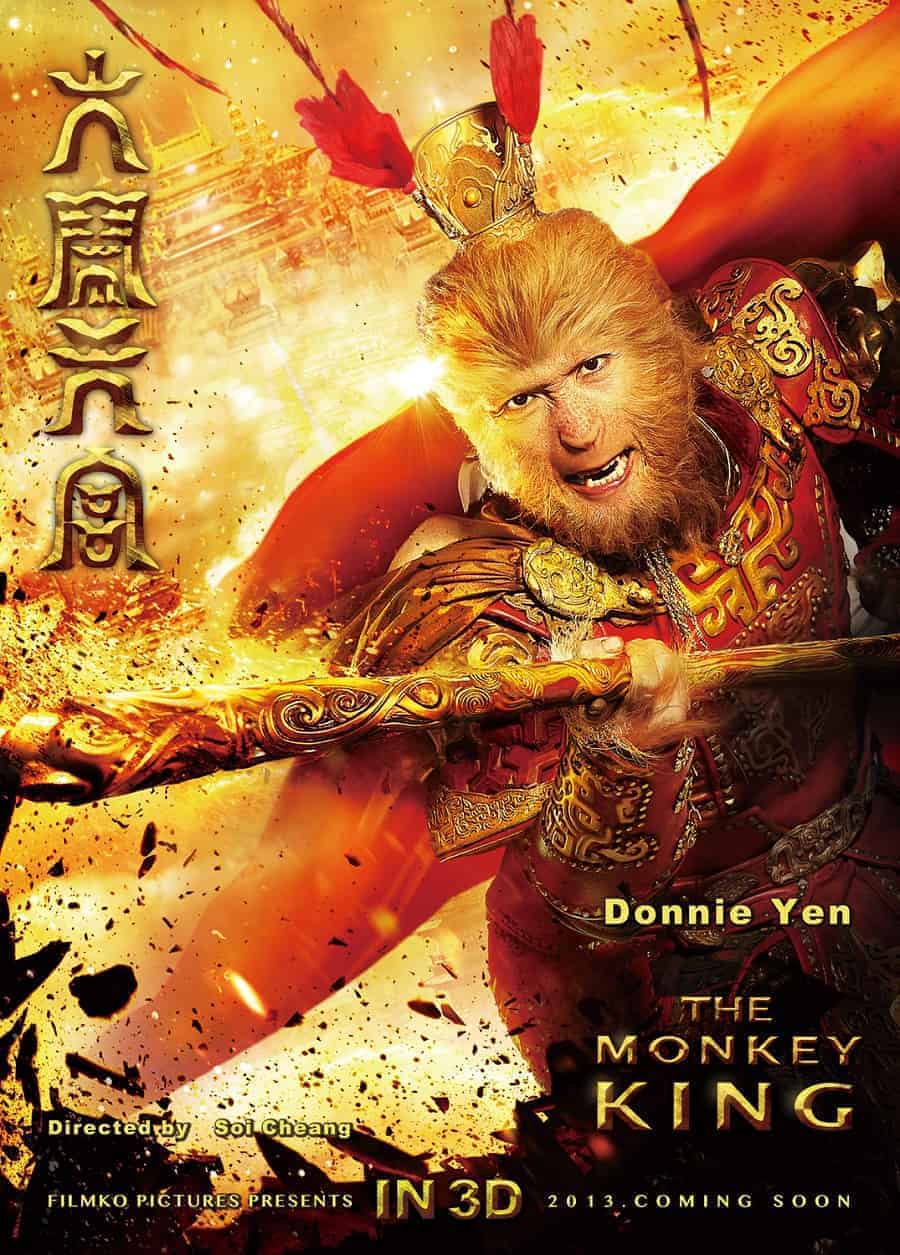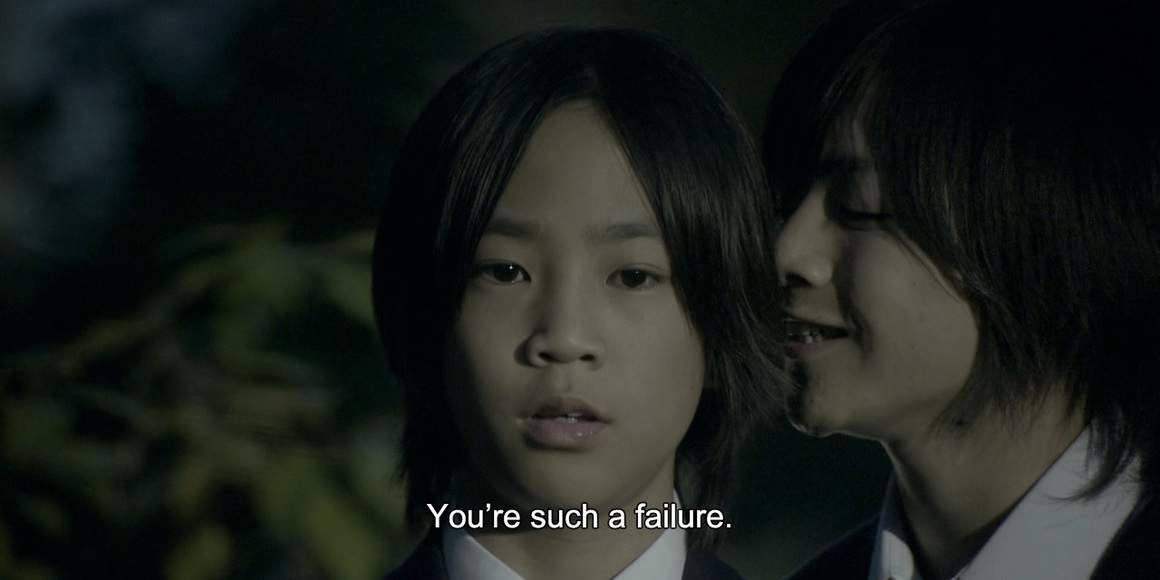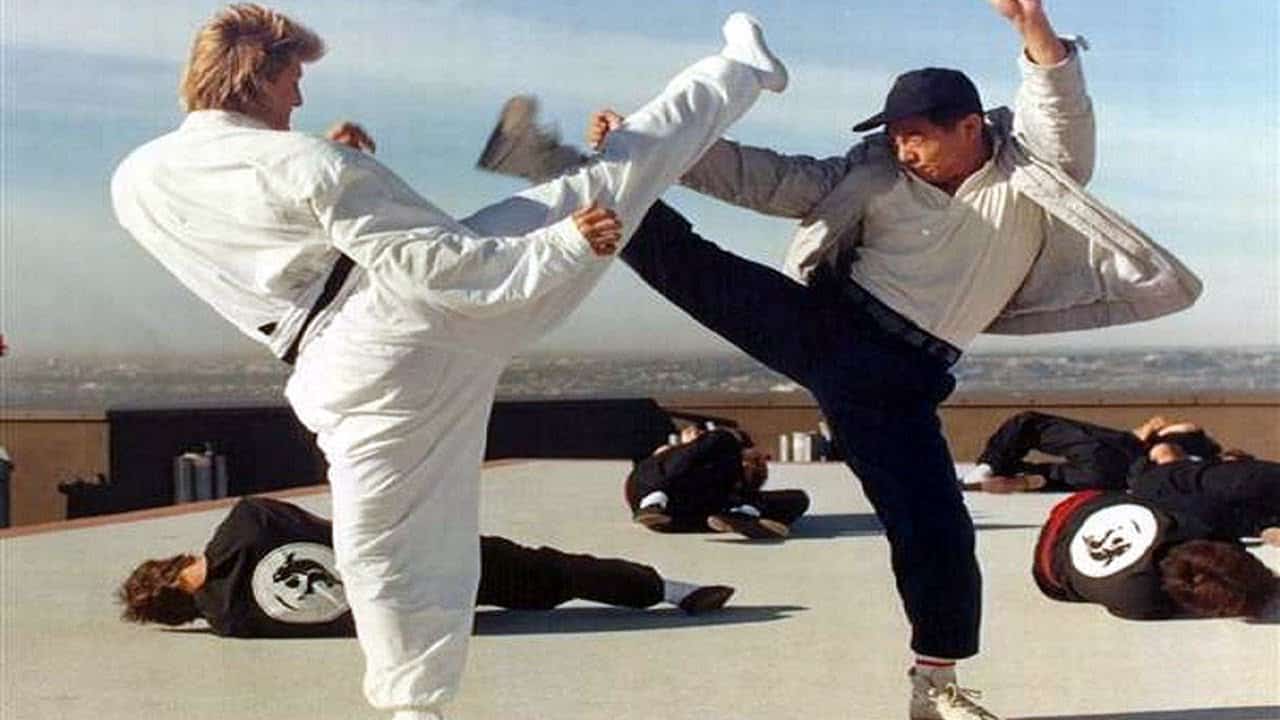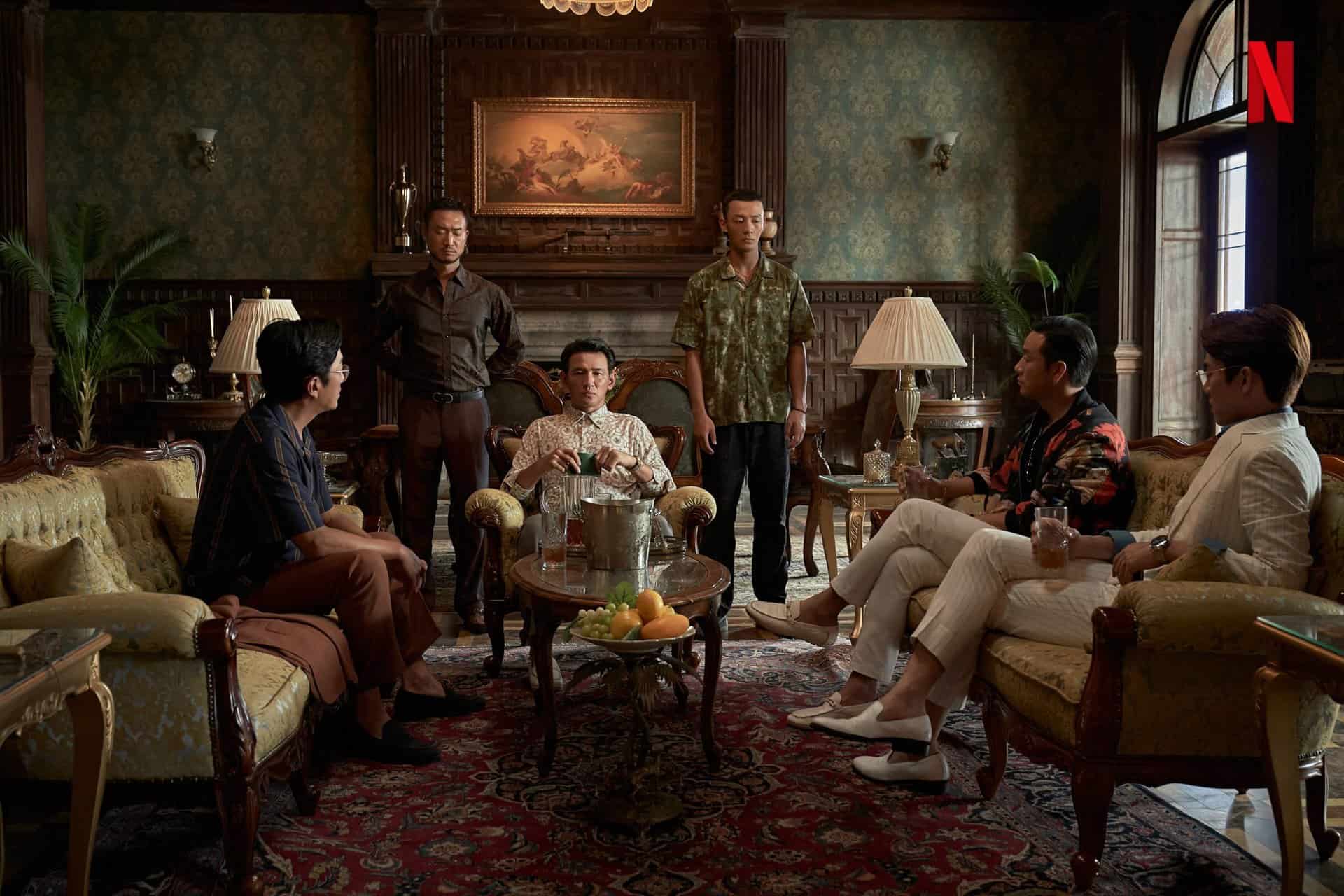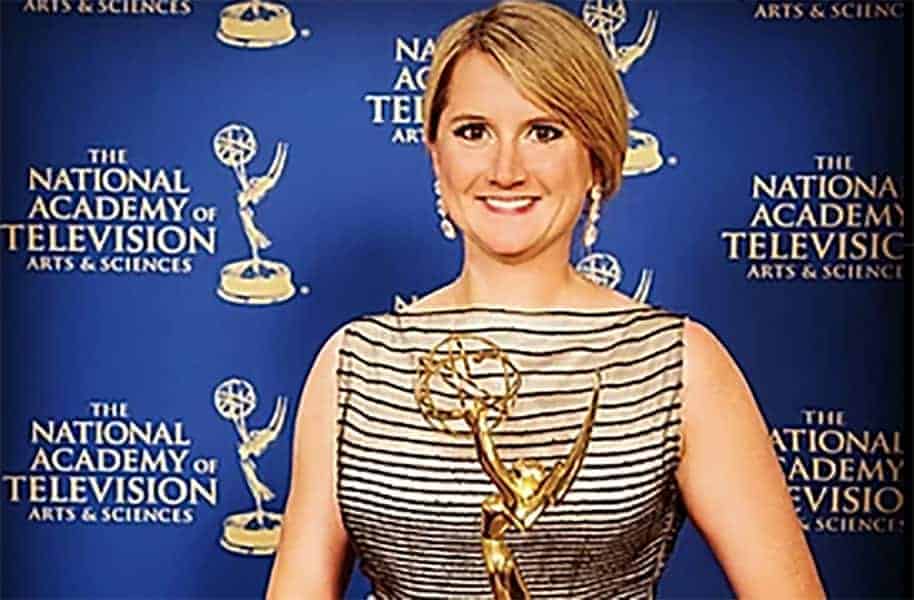Both Wanweaw Hongvivatana and Weawwan Hongvivatana are directors, producers and screenwriters from Thailand. They are also twin sisters and have worked together to write and direct the TV series Great Men Academy (2019) and the documentary Wish Us Luck (2013).
On the occasion of their debut feature screening at the Osaka Asian Film Festival, we speak with both Wanweaw and Weawwan Hongvivatana about their filmmaking experience as twins, sisterhood and the Thai movie industry.
You & Me & Me screened at Osaka Asian Film Festival

How was it as an experience, being twins and shooting a film about twins? Was it something you always had in mind to do?
Each and every twin seems to have an interest in the wonders of being twins and conveys it from different angles. The feature film is the tool that we chose to tell this story. We can say that we have always been interested in twinship so when it was time for us to make our first movie, we chose a story about twins because it's the world that we know best. There are a lot of details we can make into a motion picture and give the audience a better understanding of twinship.
Most of the twins in films and media (excluding documentaries) usually are portrayed in scary, psychotic, or comedic ways. There's hardly a story about twins as normal people. So, we aimed to create a world of twins that is as realistic as possible. But during the casting process, we couldn't find the real twin actresses who would be right for the role, so we cast Baipor (Thitiya) to play double roles as You and Me instead. We were very worried about whether we could make one person into twins believable. Moreover, this is Baipor's first movie and she had to go through such challenging roles. So, we had to make a lot of preparations for both acting training and shooting techniques. In the end, as Baipor wasn't well known at the time, when the movie was released in Thailand, a lot of the audience believed that Baipor really had a twin sister. And when they realized that there is only one actress, they were all surprised. As twin sisters, we were so glad that we could create all the details in the film and make one actress as twins believable.
How close to the events of the movie are your own experiences in life, particularly in the case of romance?
The story is not 100% from our childhood. The main plot is from our imagination, but there are some parts of the story that were developed from our lives, i.e. our family is half-Isan; we visit our granny in the upcountry during our school breaks. And the detailed elements regarding twins, some are from our own experiences, and some are inspired by other pairs of twins whom we interviewed for more information to add to the script. Regarding the romantic relationship, it has not happened to us yet.
What would you say are the differences between identical twin sisters, and “normal” sisters in terms of how they are connected to each other?
For ‘normal' sisters, even though they're close, there's still seniority. There are some cultural values that could distance them i.e. the younger has to respect the older, the older has to yield for the sake of the younger, the younger has to use the older's hand-me-downs, etc. As for twins, we're like same-aged friends. But we're also closer than friends who, no matter how close we are with them, still have other parts of their lives with their families, unlike twins where every stage of social learning in our lives happens at the same time, such as, when we learn to speak, walk, go to school etc.
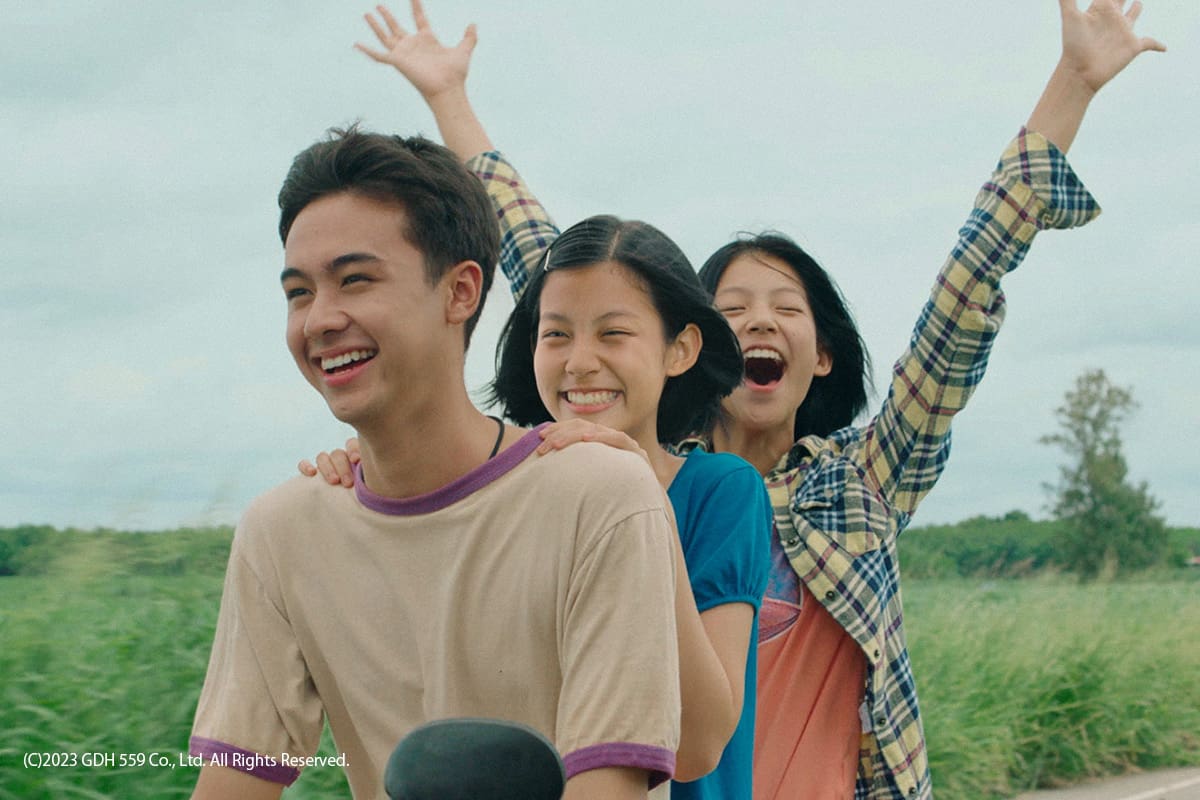
So, the connection between twins (who grow up together) is very profound because we've experienced the world together. It's like two circles superimposed on one another. But one day, these two circles will drift apart when they start to figure out their own identities and paths. In the movie “You & Me & Me”, we also would like to deal with this period through the characters' first love experience.
Why did you choose to place the movie in the particular era?
At first, the story didn't take place in that era. But, somehow, we felt that we didn't want to tell the story in the present day. Maybe because nowadays everyone has figured out their own identities through social media. And we thought it was unappealing. So, we tried to look back in time at which era would work best for our story. And the year 1999 popped up in our memories. Both of us were also the same age as the characters at that time. There was a rumor that the world would end. The Y2K issues would cause disasters once the year 2000 came. It was a year filled with concerns and worries about what would happen next. It was the middle era between old and modern times. So, we thought this setting would best reflect the conflicts that the characters are facing, whether it be that they are in the middle between being children and becoming young adults; they are worried if their parents will get divorced; and they try to figure out what will happen with their lives.
Can you give us some details about the casting?
Baipor (Thitiya) is perfect for the role. Even though she was only 17 at the time of the shooting, she looks young enough to play a middle schooler. She seems to have two personalities in herself, the cool side and the cheerful side. The only drawback is that there is only one Baipor. Actually, before we decided to cast her, we tried auditioning several pairs of actual twins. Who would want to make things complicated for their first directorial movie, right? By the time the deadline to finalize the cast came up, we still couldn't find the right twins. Banjong, the producer, asked us, “If there were two Baipors, would you choose them for the roles?” We replied at the same time, “Yes, definitely.” Banjong then said, “Then let's make Baipor two persons”. That's how we got to make our first movie with this much complication. In each scene, not only did Baipor have to perform twice, but every crew also had to repeat what they do twice as well. And Baipor has impressively pulled it off. Even now, there are many people who still think that Baipor actually has a twin.
How did you work out the issue of having one actress playing two roles?
It's very challenging. Everything had to be well-planned in advance. The techniques we used to create twins are varied, from a basic technique like over-the-shoulder shots, which means we need a body double to act alongside Baipor. The double also needed to thoroughly understand both characters and script, and be in sync with Baipor as they have to take turns playing both You and Me.
Another technique we used is the ‘split frame'. We would record where Baipor played as You on one side first. Then we would lock the frame, and Baipor would switch to play as Me on the other side in the same scene. What makes this technique more realistic is the communication between both characters. Therefore, the challenge was that Baipor needed to play and be in sync with her previous good take of another character. The timing where they make eye contact and conversations needed to match with what she played before.
Check the review of the film
The most complicated technique is using CGI for the scenes where the twins physically interact with each other. We used the ‘face scan' and ‘face replacement' techniques where we would use the body of the double and replace her face with Baipor's. Not only we had to shoot the scene where Baipor and the double act together, but we also had to shoot Baipor again, focusing on her face in order to use it as source material for the CGI process. Some examples of scenes using this technique are the bicycle riding scene, the 3-people on motorcycle riding scene, and the You and Me fighting over a blanket scene.
What is your opinion of the Thai movie industry at the moment?
In our opinion, the Thai movie industry doesn't do well at the moment. We aren't sure what are the exact problems. When Thai movie studios keep producing commercial movies to make sure that they can draw the majority of the audience and make a profit, the audiences complain about the lack of variety in Thai movies. There are only horror, comedy and romance genres. However, when the studios produce some unconventional movies, the audience won't come out to watch them either. So, the studios have no choice but to play safe by producing commercial kind of movies in order to keep their business going. Therefore, the lack of variety in Thai movies is still an unsolved issue.
Especially, when streaming content has been booming, it makes everything more challenging. Going out to the cinema becomes a luxurious experience because the cinemas here are considered extravagant places, not to mention the ticket price that is so expensive to the point that the audience has to think over and over whether spending it on a movie would be worth it.
Another issue is that we spend over two years making the movie, but it will last in the cinemas for only 2-4 weeks. And when blockbuster movies hit the cinemas, the show times for Thai movies will be drastically reduced or left with only show times at odd hours. The decision regarding these show times is made solely by the cinema chain owners.
The channel for making movies for theatrical release is narrower. The investors don't get their returns. It affects the below-the-line crew where fees are severely cut and their working hours are so brutal. It has affected everyone in the industry and increased more chances for people to directly produce movies for streaming platforms.
If we need to save our movie theatrical industry, we believe that the government has to take action. But we all know that the entertainment industry is the last thing that the Thai government would be concerned about. It's quite a shame.




